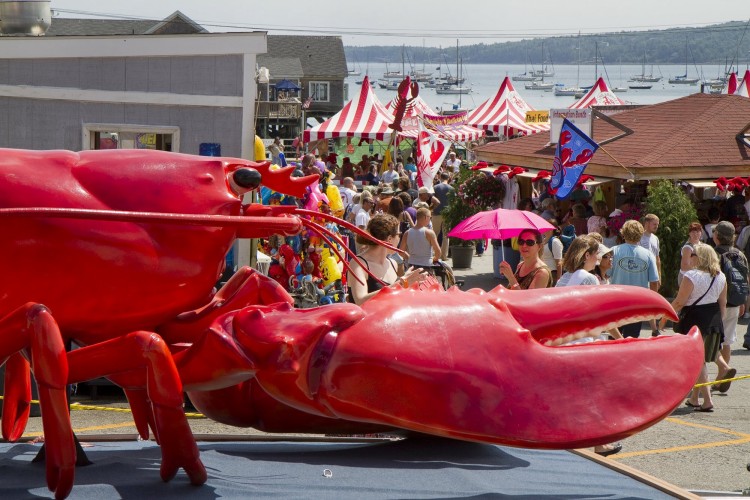AUGUSTA – Lobstermen and dealers likely will pay equal shares of the cost of a new marketing effort designed to raise demand – and prices – for Maine lobster.
The Legislature’s Marine Resources Committee voted unanimously Monday to endorse a bill calling for a 50/50 percent split between lobster harvesters and dealers to fund a reconfigured lobster marketing and promotional council, said Rep. Ralph Chapman, D-Brooksville, a committee member.
For many lobstermen, the cost — over and above current fees — probably would about double their yearly license fees, lawmakers said. But the exact amounts, which would vary by the class of harvesters’ license, were not available Monday, nor were the precise levies on dealers.
Several dealers and processors in southern and midcoast Maine said they weren’t happy about what they were hearing about the promotional effort but were withholding final judgment until the full details were known.
The Maine Lobster Promotion Council’s annual budget — now about $375,000 — is set to be increased to $3 million, with all funding from fees and surcharges on lobstermen, dealers, processors and transporters, lawmakers said.
The money raised by additional fees on licenses for harvesting and commercial sales and handling of lobster would increase incrementally over three years along with the council’s budget.
In addition to $1 million already earmarked for the council’s budget, the new allocations are set at $1 million in the first year, $2 million in the second year and $3 million in the third.
At that point, the council’s success in improving the lobster market in Maine would be evaluated and lawmakers would have a chance to stop the marketing program if it has not shown sufficient progress, legislators and advocates of the lobster industry have agreed.
Raymond Soler, a 30-year lobsterman from East Boothbay, opposes the increased fees.
“Wow, that’s a lot of money, isn’t it?” he said. “Once they get that money, the (license and fee) price will never come down. I think it’s a raw deal. I have no idea what they’re doing.”
Soler said lobster landings vary so much from one part of the coast to another that it is unfair for the marketing surcharge to be tied simply to licenses. The productivity of the zone should be taken into account, he said, because pollution and high water temperatures have left some areas almost stripped clean of lobsters.
Soler said that in recent years, sales have barely covered the cost of bait, fuel and maintenance.
Last year, the price paid to lobstermen dropped to near-record lows, hovering at $2 to $2.50 for weeks.
The equal split in fees for lobstermen and dealers represents a change from the original proposal brought to the committee. It called for 75 percent of the cost to be borne by lobstermen and 25 percent by dealers.
After informational meetings, public hearings, work sessions and vigorous debate — in committee and in the lobster industry — over the last few months, the committee abandoned the original split.
Maine has an estimated 4,500 to 5,000 lobstermen and, by some state estimates, fewer than 500 dealers. A 50/50 split of the fees for the marketing budget would be spread over the much larger group so the average increase for lobstermen would be substantially less than the added levy on dealers, legislative officials said.
The Marine Resources Committee voted to incorporate an additional surcharge structure for dealers, with fees based on gross truck weights rather than lobster landings. The idea is to try to ensure that smaller dealers with smaller truck fleets will not have to bear a disproportionate amount of that group’s contributions, said Chapman, the committee member. Large operations would pay a greater part of the cost.
The job of setting the formula for a tiered system of fees for dealers, transporters and processors has been delegated to the Department of Marine Resources, Chapman said.
The committee put off action on the bill most recently to find a way to ensure that small dealers would not face an overwhelming financial burden in paying for promotion and marketing. Several members have said that larger dealers should be asked to pay more of the cost.
According to the Maine Lobster Promotion Council, in 2011 the state’s catch exceeded 100 million pounds and generated more than $330 million in dock value. The fishery also supports businesses such as processors, marine outfitters, boat makers, retailers and restaurants.
North Cairn can be contacted at 791-6325 or at:
ncairn@pressherald.com
Send questions/comments to the editors.


